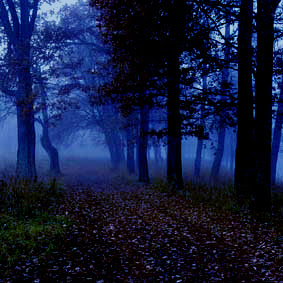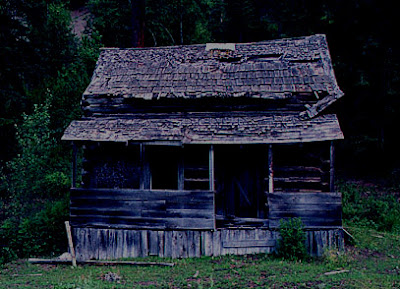
There was a stunted handpost just on the crest,
Only a few feet high:
She was tired, and we stopped in the twilight-time for her rest,
At the crossways close thereby.
She leant back, being so weary, against its stem,
And laid her arms on its own,
Each open palm stretched out to each end of them,
Her sad face sideways thrown.
.
Her white-clothed form at this dim-lit cease of day
Made her look as one crucified
In my gaze at her from the midst of the dusty way,
And hurriedly "Don't," I cried.
I do not think she heard. Loosing thence she said,
As she stepped forth ready to go,
"I am rested now.--Something strange came into my head;
I wish I had not leant so!"
And wordless we moved onward down from the hill
In the west cloud's murked obscure,
And looking back we could see the handpost still
In the solitude of the moor.
"It struck her too," I thought, for as if afraid
She heavily breathed as we trailed;
Till she said, "I did not think how 'twould look in the shade,
When I leant there like one nailed."
I, lightly: "There's nothing in it. For YOU, anyhow!"
--"O I know there is not," said she . . .
"Yet I wonder . . . If no one is bodily crucified now,
In spirit one may be!"
And we dragged on and on, while we seemed to see
In the running of Time's far glass
Her crucified, as she had wondered if she might be
Some day.--Alas, alas!
[Image : A Celtic Cross near Lanivet]
 Christmas Eve, and twelve of the clock.
Christmas Eve, and twelve of the clock.



























.jpg%5B1%5D.jpg)















.jpg%5B1%5D.jpg)



